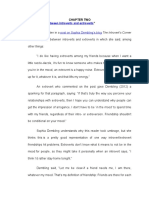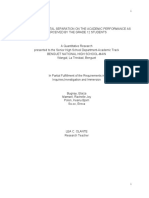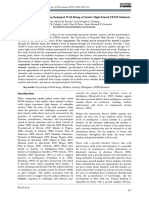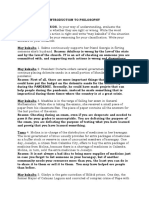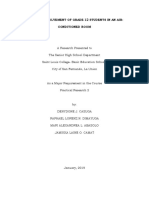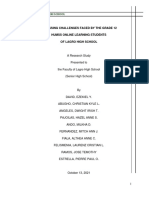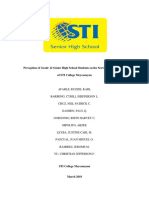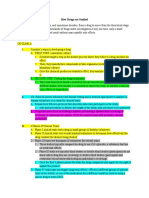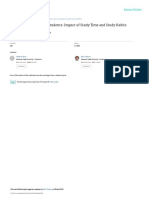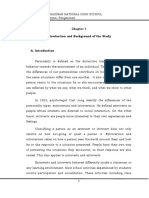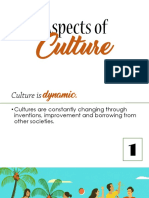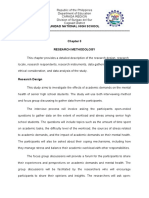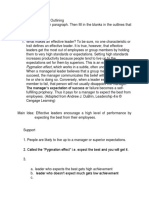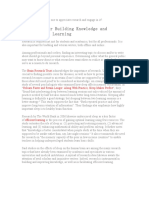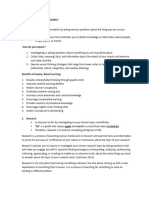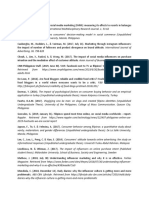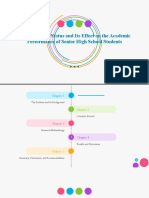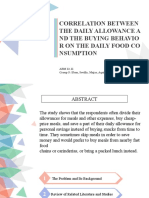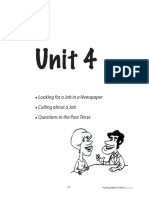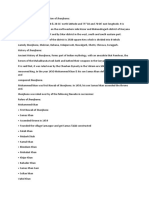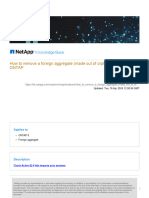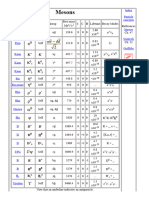0% found this document useful (0 votes)
698 views22 pagesGroup 1 Chapter 2
The document discusses research on the correlation between personality traits and academic achievement of students. It describes studies that found certain personality traits are associated with higher academic performance, such as conscientiousness, emotional stability, and openness. The document also reports on studies that found students in certain fields of study tended to score higher or lower on specific personality traits, with arts students being more neurotic and extroverted, while economics students were less agreeable. Personality is presented as an important factor that can influence students' learning and achievement.
Uploaded by
Tirsolito SalvadorCopyright
© © All Rights Reserved
We take content rights seriously. If you suspect this is your content, claim it here.
Available Formats
Download as DOCX, PDF, TXT or read online on Scribd
0% found this document useful (0 votes)
698 views22 pagesGroup 1 Chapter 2
The document discusses research on the correlation between personality traits and academic achievement of students. It describes studies that found certain personality traits are associated with higher academic performance, such as conscientiousness, emotional stability, and openness. The document also reports on studies that found students in certain fields of study tended to score higher or lower on specific personality traits, with arts students being more neurotic and extroverted, while economics students were less agreeable. Personality is presented as an important factor that can influence students' learning and achievement.
Uploaded by
Tirsolito SalvadorCopyright
© © All Rights Reserved
We take content rights seriously. If you suspect this is your content, claim it here.
Available Formats
Download as DOCX, PDF, TXT or read online on Scribd
/ 22

